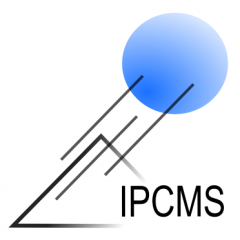Mohapatra, S., Da Costa, V., Avedissian, G., Arabski, J., Weber, W., Bowen, M., Boukari, S., 2020. Robust ferroelectric properties of organic croconic acid films grown on spintronically relevant substrates. Mater. Adv. https://doi.org/10.1039/D0MA00147C
Ferroelectric materials have found substantial applications in a number of fields spanning from the field of electronic-spintronic devices and sensors-transducers to energy harvesting and heat transfer applications. In the field of electronic devices, the use of ferroelectric materials have contributed to the realization of a plethora of devices, starting from memory devices to voltage operated spintronic devices. Organic ferroelectric materials provide added advantages due to their flexibility, chemical functionality, low cost, easy processing and low power consumption. Organic ferroelectric materials based devices such as ferroelectric random access memory (FeRAM), ferroelectric field effect transistors (FeFET), ferroelectric tunnel junctions (FTJ), ferroelectric optoelectronic devices, ferroelectric resistive switches, ferroelectric capacitors and memory diodes have been realized in the recent past. However, the availability of organic ferroelectric materials has not been abundant and potential applications of organic ferroelectric materials have been limited to polymer based materials. Along with small polarization values offered by polymeric materials in comparison to inorganic materials, they are not suitable for low voltage applications due to high switching field required for polarization switching and leakage current in vertical devices.
